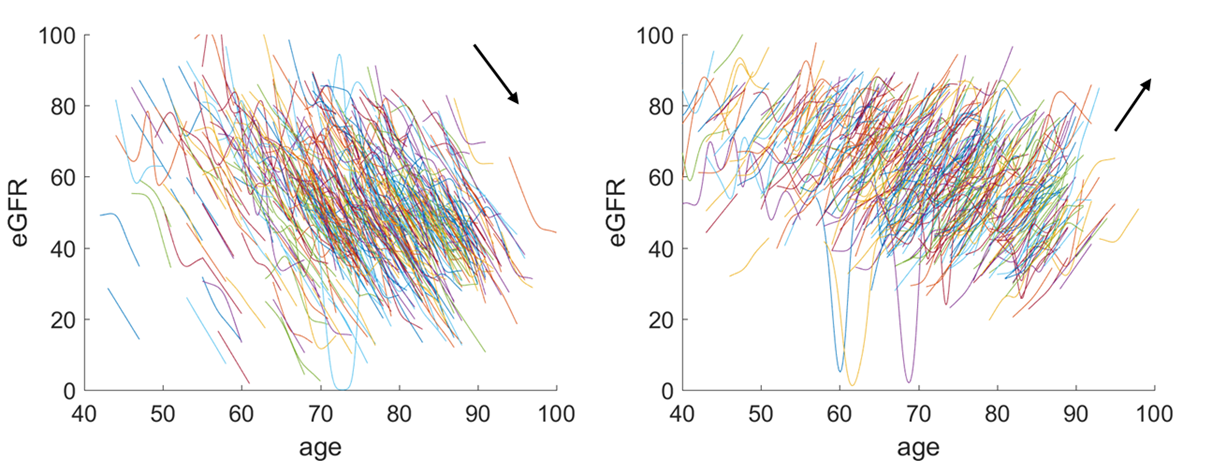Healthcare Analytics: A Case Study in Chronic Kidney Disease
Healthcare analytics
Advancements in machine learning algorithms, massive data storage and cloud computing as well as mobile computing can now power intelligent applications that can improve our quality of life. By healthcare analytics, we leverage on the above developments to deliver solutions to keep health and care costs low whilst keeping high quality of care at the same time by empowering patients to better understand their own health and healthcare professionals with more holistic information to make better treatment decisions.
In this blog, I would like to demonstrate how machine learning can help clinicians understand the progression of Chronic Kidney Disease or CKD.
Why Chronic Kidney Disease?
Chronic Kidney Disease (CKD) is a significant cause of morbidity and mortality across the developed world. Patients with CKD have increased risk of death from cardiovascular disease and End Stage Kidney Failure, leading to dialysis and kidney transplant. Indeed, according to an NHS Kidney Care report in 2012, CKD was estimated to cost £1.45 billion in 2009-10; 1.8 million people were diagnosed with CKD in England; and, there were potentially 900,000 to 1.8 million people with undiagnosed CKD. Therefore, the importance and urgency of managing CKD cannot be over-emphasized.
CKD is difficult to manage because it is largely asymptomatic; its progression, often quantified via estimated Glomerular Filtration Rate or eGFR, is difficult to interpret due to a number of factors, namely,
-
change in assay methods (Poh and Lusignan, ICPR 2012);
-
the fluctuation of kidney function which is under the influence of myriad factors, often confounded by treatment effects and person-dependent characteristics; and
-
varying quality of data recording, among others.
These factors limit us from modelling the disease progression accurately, thus impeding us from better understanding the disease progression and consequently from clinicians from managing CKD confidently.
What kind of machine learning solutions are useful for CKD?
Machine learning addresses three typical tasks, namely, regression, classification, and clustering.
- Parametric modelling of eGFR
- Classification of eGFR trend
- Identifying signal from noise in eGFR
- Clustering trend to identify patients with drastic decline in renal function
- Clustering medical records to stratify patients
- Better CKD staging
- More refined risk stratification
- Computer vision
1. Parametric modelling of eGFR using hierarchical regression
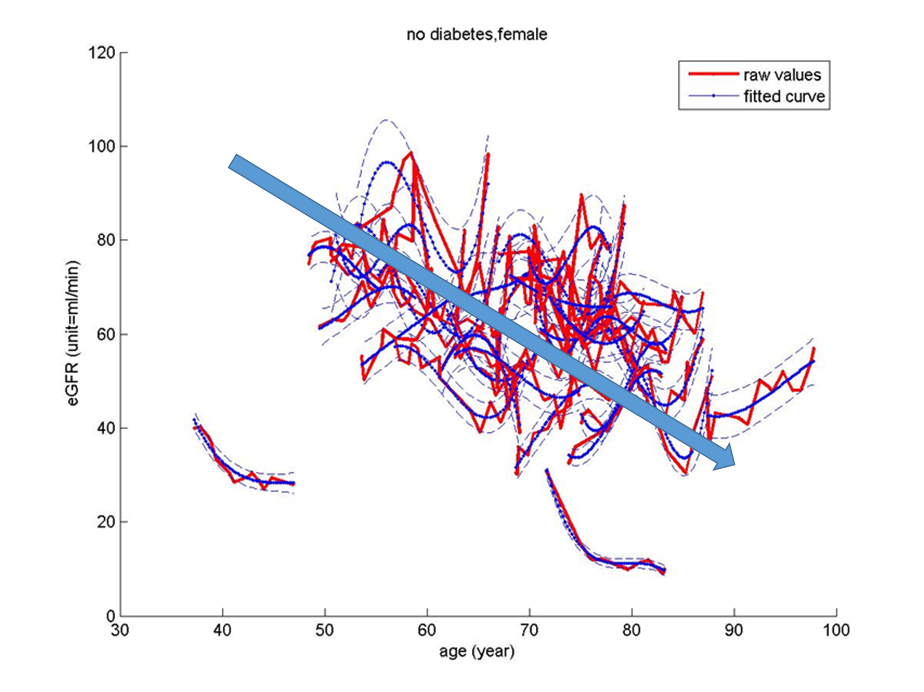
2. Classification of eGFR trend
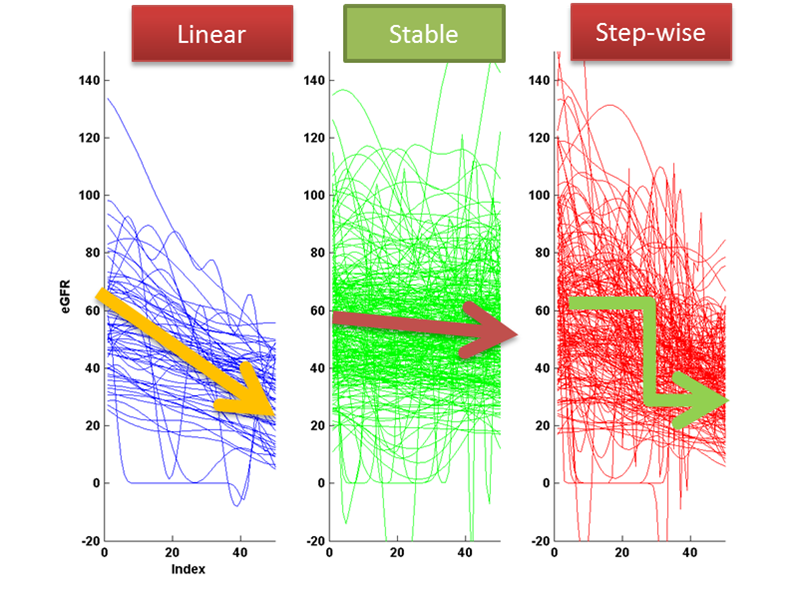
3. Identifying signal from noise in eGFR
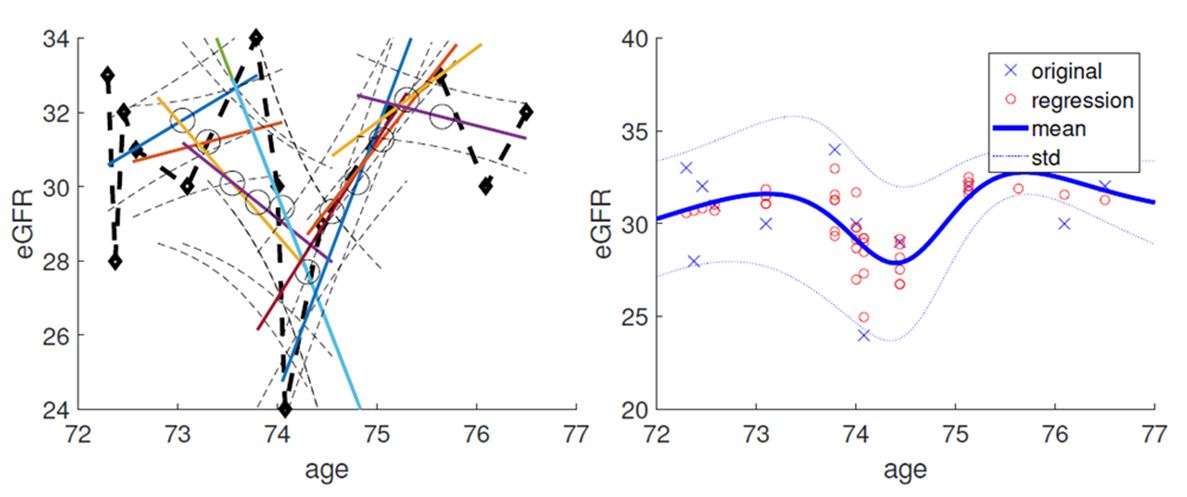
4. Clustering trend to identify patients with drastic decline in renal function
5. Clustering medical records Better CKD staging
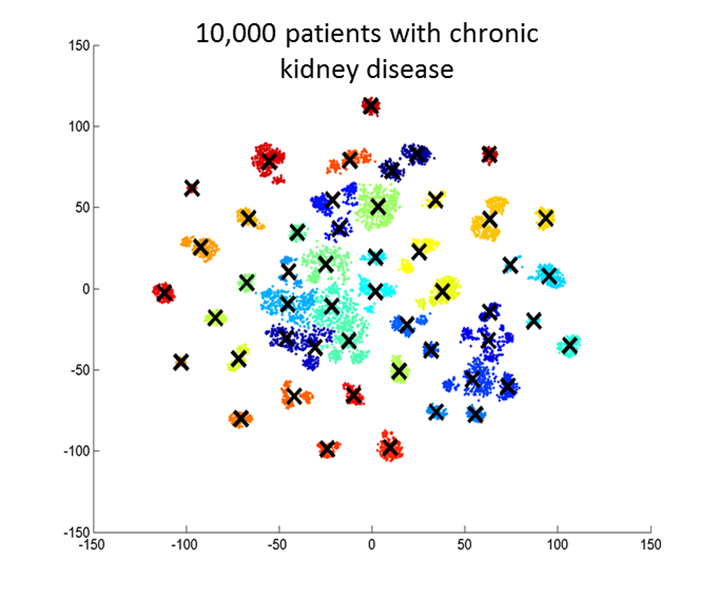
6. Better CKD staging
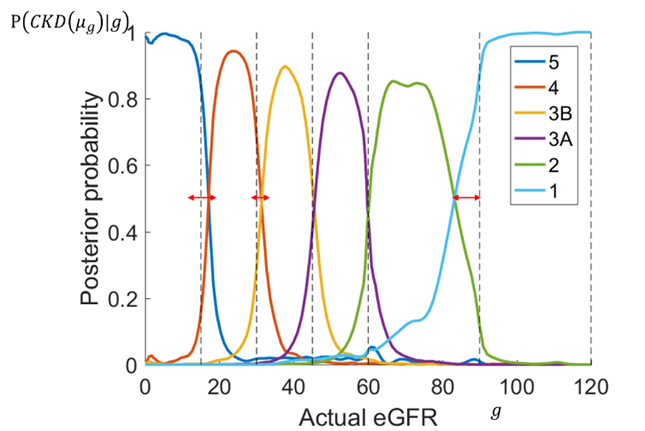
7. More refined CKD risk stratification using eGFR slope
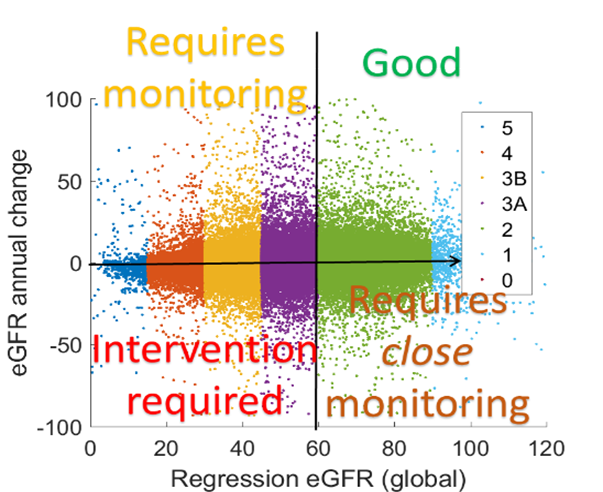
8. Computer vision for stablising kidney image sequence
Bibliographical notes
-
classification of eGFR trend: Tirunagari, S, Bull, S and Poh, Norman (2016) Automatic Classification of Irregularly Sampled Time Series with Unequal Lengths: A Case Study on Estimated Glomerular Filtration Rate. In: 2016 IEEE International Workshop on Machine Learning for Signal Processing (MLSP 2016), 2016-09-13 - 2016-09-16, Salerno, Italy.
-
xxx
Acknowledgements
-
The Medical Research Council for funding the New Investigator Research Grant (NIRG) entitled “Modelling the Progression of Chronic Kidney Disease”, or the MRC CKD project, with grant no MR/M023281/1, awarded to Dr Norman Poh
-
Prof Simon de Lusignan and the investigators for providing the initial data set from the Quality Improvement Chronic Kidney Disease (QICKD) study, which has a population denominator of nearly 1 million patient records
-
The Royal College of General Practitioners Research and Surveillance Centre (RCGP-RSC) for having extracted the data set enabling this research.
Cite this blog post
Bibtex
@misc{ poh_2018_01_11_ckd,
author = {Norman Poh},
title = { Healthcare Analytics: A Case Study in Chronic Kidney Disease },
howpublished = {\url{ http://normanpoh.github.com/blog/2018/01/11/ckd.html},
note = "Accessed: ___TODAY___"
}
